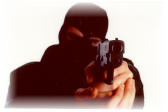
U.S. SEEKS TO REIN IN ITS MILITARY SPY TEAMS
Special Forces units work in allied countries and clash with the CIA.
By Greg Miller, Times Staff Writer
December 18, 2006
WASHINGTON — U.S. Special Forces teams sent overseas on secret spying missions have clashed with the CIA and carried out operations in countries that are staunch U.S. allies, prompting a new effort by the agency and the Pentagon to tighten the rules for military units engaged in espionage, according to senior U.S. intelligence and military officials.
The spy missions are part of a highly classified program that officials say has better positioned the United States to track terrorist networks and capture or kill enemy operatives in regions such as the Horn of Africa, where weak governments are unable to respond to emerging threats.
But the initiative has also led to several embarrassing incidents for the United States, including a shootout in Paraguay and the exposure of a sensitive intelligence operation in East Africa, according to current and former officials familiar with the matter. And to date, the effort has not led to the capture of a significant terrorism suspect.
Some intelligence officials have complained that Special Forces teams have sometimes launched missions without informing the CIA, duplicating or even jeopardizing existing operations. And they questioned deploying military teams in friendly nations — including in Europe — at a time when combat units are in short supply in war zones.
The program was approved by Secretary of Defense Donald H. Rumsfeld in the aftermath of the Sept. 11 attacks, and is expected to get close scrutiny by his successor, Robert M. Gates, who takes over today and has been critical of the expansion of the military's intelligence operations.
Senior officials at the CIA and the Pentagon defended the program and said they would urge Gates to support it. But they acknowledged risks for the United States in its growing reliance on Special Forces troops and other military units for espionage.
"We are at war out there and frankly we need all the help that we can get," said Marine Maj. Gen. Michael E. Ennis, who since February has served as a senior CIA official in charge of coordinating human intelligence operations with the military. "But at the same time we have to be very careful that we don't disrupt established relationships with other governments, with their liaison services, or [do] anything that would embarrass the United States."
Ennis acknowledged "really egregious mistakes" in the program, but said collaboration had improved between the CIA and the military.
"What we are seeing now, primarily, are coordination problems," Ennis said in an interview with The Times. "And really, they are fewer and fewer."
The issue underscores the sensitivity of using elite combat forces for espionage missions that have traditionally been the domain of the CIA.
Delta Force otherwise known as the Unit, the TV show is based on the memoirs of one of early members and who also consults on it.
The point is that Rummy unleashed other teams to do the same thing and it backfiring because the skill sets are different.
The Army handpicks the Unit. They aren't handpicking all these other teams.
No comments:
Post a Comment